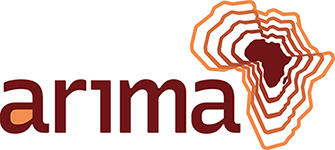 |
Pasteur Poda ; Samir Saoudi ; Thierry Chonavel ; Frédéric Guilloud ; Théodore Tapsoba - Estimation non-paramétrique par méthode à noyau de la probabilité d'erreur binaire dans les systèmes de communication numériques : un estimateur pour le calcul du taux d'erreur binaire des systèmes MAQ codés
arima:4348 - Revue Africaine de Recherche en Informatique et Mathématiques Appliquées, 3 août 2018, Volume 27 - 2017 - Numéro spécial CARI 2016 - https://doi.org/10.46298/arima.4348- 1 Université Polytechnique Nazi Boni Bobo-Dioulasso
- 2 Université Nazi Boni (Bobo-Dioulasso) [UNB]
- 3 Département Signal et Communications
- 4 Lab-STICC_IMTA_CACS_COM
- 5 Lab-STICC_IMTA_CID_TOMS
[en]
The standard Monte Carlo estimations of rare events probabilities suffer from too much computational time. To make estimations faster, kernel-based estimators proved to be more efficient for binary systems whilst appearing to be more suitable in situations where the probability density function of the samples is unknown. We propose a kernel-based Bit Error Probability (BEP) estimator for coded M-ary Quadrature Amplitude Modulation (QAM) systems. We defined soft real bits upon which an Epanechnikov kernel-based estimator is designed. Simulation results showed, compared to the standard Monte Carlo simulation technique, accurate, reliable and efficient BEP estimates for 4-QAM and 16-QAM symbols transmissions over the additive white Gaussian noise channel and over a frequency-selective Rayleigh fading channel.
[fr]
Les estimations de probabilités d'événements rares par la méthode de Monte Carlo classique souffrent de trop de temps de calculs. Des estimateurs à noyau se sont montrés plus efficaces sur des systèmes binaires en même temps qu'ils paraissent mieux adaptés aux situations où la fonction de densité de probabilité est inconnue. Nous proposons un estimateur de Probabilité d'Erreur Bit (PEB) à noyau pour les systèmes M-aires codés de Modulations d'Amplitude en Quadrature (MAQ). Nous avons défini des bits souples à valeurs réelles à partir desquels un estimateur à noyau d'Epanechnikov est conçu. Les simulations ont montré, par rapport à la méthode Monte Carlo, des estimées de PEB précises, fiables et efficaces pour des transmissions MAQ-4 et MAQ-16 sur canaux à bruit additif blanc Gaussien et à évanouïssements de Rayleigh sélectif en fréquence.
- Source : OpenAIRE Graph
- Mobile and wireless communications Enablers for Twenty-twenty (2020) Information Society; Financeur: European Commission; Code: 317669
